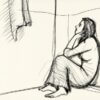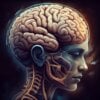How do I know if I am going through depression?


addictionbipolar disorderborderline personality disorderco-occurringdepressionDissociative Disordersdual diagnosisIntensive Outpatient Rehabmental healthMood DisordersParanoia And Delusional DisordersPersonality DisorderPost-Traumatic Stress DisorderSchizoaffective DisorderSchizophreniaSocial Anxiety Disorder
Dealing with Complicated Grief


addictionbody dysmorphic disorderborderline personality disorderco-dependencyco-occurringdepressionDissociative Disordersdual diagnosisInpatient Residential RehabIntensive Outpatient Rehabmental healthObsessive-Compulsive Disorder (OCD)PhobiasPost-Traumatic Stress DisorderRehabSchizoaffective Disorderstress
Mental Health at the Olympic Games


anxietybipolar disorderbody dysmorphic disorderborderline personality disorderco-occurringdepressionDissociative Disordersdual diagnosisIntensive Outpatient Rehabmental healthMood DisordersObsessive-Compulsive Disorder (OCD)Panic DisorderParanoia And Delusional DisordersPersonality DisorderPhobiasPost-Traumatic Stress DisorderSocial Anxiety DisorderstressTreatment Center
Being scared to ask for help


anxietybipolar disorderborderline personality disorderco-dependencyco-occurringdepressionDissociative Disordersdual diagnosisInpatient Residential RehabIntensive Outpatient Rehabmental healthPersonality DisorderPhobiasPost-Traumatic Stress DisorderRehabSchizophreniaSocial Anxiety DisorderstressTreatment Center










Recent Comments